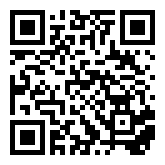Pages:
111-132
Receive Date: 2025/12/24
Accept Date: 2025/12/24
Abstract:
Using descriptive-analytical method, this paper has analyzed the thoughts and exegetical works of contemporary Islamic scholars (14th century) of the Qom seminary regarding the issue of "religious sovereignty". The research aims to explain the religious sovereignty in the thoughts and exegetical works of the scholars and to present their position on this issue. To this end, the paper tried to figure out, analyze and explain the exegetical achievements of these thinkers as the six indicators of religious sovereignty: 1. Religious sovereignty as the sovereignty of justice and values; 2. Relationship between religion and politics; 3. The necessity of government; 4. Government legitimacy; 5. The popularity of government; 6. Government structure. The research results show that the outcome of thoughts of contemporary Islamic scholars of the Qom seminary in the interpretation of the Qur’anic verses related to religious sovereignty has both positive and negative aspects. On the negative side, the interpretation of these thinkers is as follows: controversy, criticism and negation of the legitimacy of the political system and the foundations of tyrannical rule. On the positive side, the exegetical achievement of these thinkers includes explaining the components of religious and divine sovereignty and explaining its dimensions, especially in the era of the occultation of Imam Mahdi.
چکیده و کلیدواژه فارسی (Persian)
Title :حاکمیت دینی در اندیشه و آثار تفسیری عالمان حوزة علمیة قم در سدة اخیر
Abstract:
این مقاله با روش توصیفی ـ تحلیلی اندیشه و رهاورد نفسیری عالمان اسلامی معاصر حوزهی علمیهی قم (سدۀ چهاردهم شمسی) در موضوع «حاکمیت دینی» را بررسی کرده است. هدف پژوهش حاضر تبیین حاکمیت دینی در اندیشه و آثار تفسیری این اندیشوران و بیان موضع آنان در اینباره است. بدینمنظور به بازیابی، تحلیل و تبیین دستاوردهای تفسیری این متفکران ذیل شاخصهای ششگانه حاکمیت دینی پرداخته است: 1. حاکمیت دینی بهمثابه حاکمیت عدالت و ارزشها؛
2. پیوستگی دین و سیاست؛ 3. ضرورت حکومت؛ 4. مشروعیت حکومت؛ 5. مردمی بودن حکومت؛ 6. ساختار حکومت. یافتههای پژوهش نشان میدهد که حاصل اندیشهورزی عالمان اسلامی معاصر حوزهی علمیهی قم در تفسیر آیات مربوط به حاکمیت دینی، دارای دو وجه ایجابی و سلبی است. در وجه سلبی رهاورد تفسیری این اندیشمندان عبارت است از: مناقشه و نقد و نفی مشروعیت نظام سیاسی و بنیانهای حاکمیت طاغوتی؛ و در وجه ایجابی دستاورد تفسیری این اندیشوران عبارت است از: تبیین مؤلفههای حاکمیت دینی و الهی و تشریح ابعاد آن، بهویژه در عصر غیبت معصوم (ع)
References:
- بیانات رهبر معظم انقلاب، در: KHAMENEI.IR
- جمعی از نویسندگان، 1341، «ولایت و زعامت»، در: بحثی درباره مرجعیت و روحانیت، تهران، شرکت سهامی انتشار.
- جوادی آملی، عبدالله، 1378، تسنیم در تفسیر قرآن کریم، قم، اسراء.
- جوادی آملی، عبدالله، 1383، تسنیم در تفسیر قرآن کریم، قم، اسراء.
- راش، مایکل، 1395، جامعه و سیاست: مقدمهای بر جامعهشناسی سیاسی، ترجمة منوچهر صبوری، تهران، سمت.
- سبحانی، جعفر، 1380، مفاهیم القرآن، چ سوم، قم، مؤسسة امام صادق(ع).
- سجادی، سیدابراهیم، 1375، «شکوفایی تفسیر موضوعی در بستر قرن اخیر»، پژوهشهای قرآنی، ش 7و8، ص 128ـ149.
- شمس، سیدمحمدکاظم و دیگران، 1383، مؤسس حوزه: یادنامه حضرت آیتالله حاج شیخ عبدالکریم حائری، قم، بوستان کتاب.
- طباطبائى، سیدمحمدحسین، 1430ق، المیزان فی تفسیر القرآن، چ نهم، قم، جامعة مدرسین.
- فرجاد، محمد، 1375، «نبایستهها در تفاسیر یک صد ساله اخیر»، پژوهشهای قرآنی، ش ۷و۸، ص 206ـ231.
- قاضی، ابوالفضل، 1387، حقوق اساسی و نهادهای سیاسی، تهران، دانشگاه تهران.
- مصباح یزدی، محمدتقی، 1377، حقوق و سیاست در قرآن، قم، مؤسسة آموزشی و پژوهشی امام خمینی.
- مکارم شیرازی، ناصر و همکاران، 1379، تفسیر نمونه، تهران، دارالکتب الاسلامیه.
- نصیری، علی، 1384، «مبانی کلامی تفسیر موضوعی»، اندیشه نوین دینی، ش 3، ص 73ـ106.
- واعظی، احمد، 1386، حکومت اسلامی، قم، مرکز مدیریت حوزة علمیه.
- ویژه، محمدرضا، 1385، «مفهوم تازه حاکمیت در حقوق عمومی»، سیاسی اقتصادی، ش ۲۳۱و۲۳۲، ص 34ـ47.
Cite this article:
RIS
Mendeley
BibTeX
APA
MLA
HARVARD
VANCOUVER
APA | MLA | HARVARD | VANCOUVER
Norouzi farani, Mohammad javad.(2025) Religious Sovereignty in the Thoughts and Exegetical Works of Contemporary Scholars of the Qom Seminary. ًQur'an Shinakht, 17(1), 111-132 https://doi.org/10.22034/qoranshenakht.2024.5000372
APA | MLA | HARVARD | VANCOUVER
Mohammad javad Norouzi farani."Religious Sovereignty in the Thoughts and Exegetical Works of Contemporary Scholars of the Qom Seminary". ًQur'an Shinakht, 17, 1, 2025, 111-132
APA | MLA | HARVARD | VANCOUVER
Norouzi farani, M.(2025) 'Religious Sovereignty in the Thoughts and Exegetical Works of Contemporary Scholars of the Qom Seminary', ًQur'an Shinakht, 17(1), pp. 111-132
APA | MLA | HARVARD | VANCOUVER
Norouzi farani, M. Religious Sovereignty in the Thoughts and Exegetical Works of Contemporary Scholars of the Qom Seminary. ًQur'an Shinakht, 2025; 17(1): 111-132
 / Professor, Department of Political Science, IKI / norozimj@iki.ac.ir
/ Professor, Department of Political Science, IKI / norozimj@iki.ac.ir



